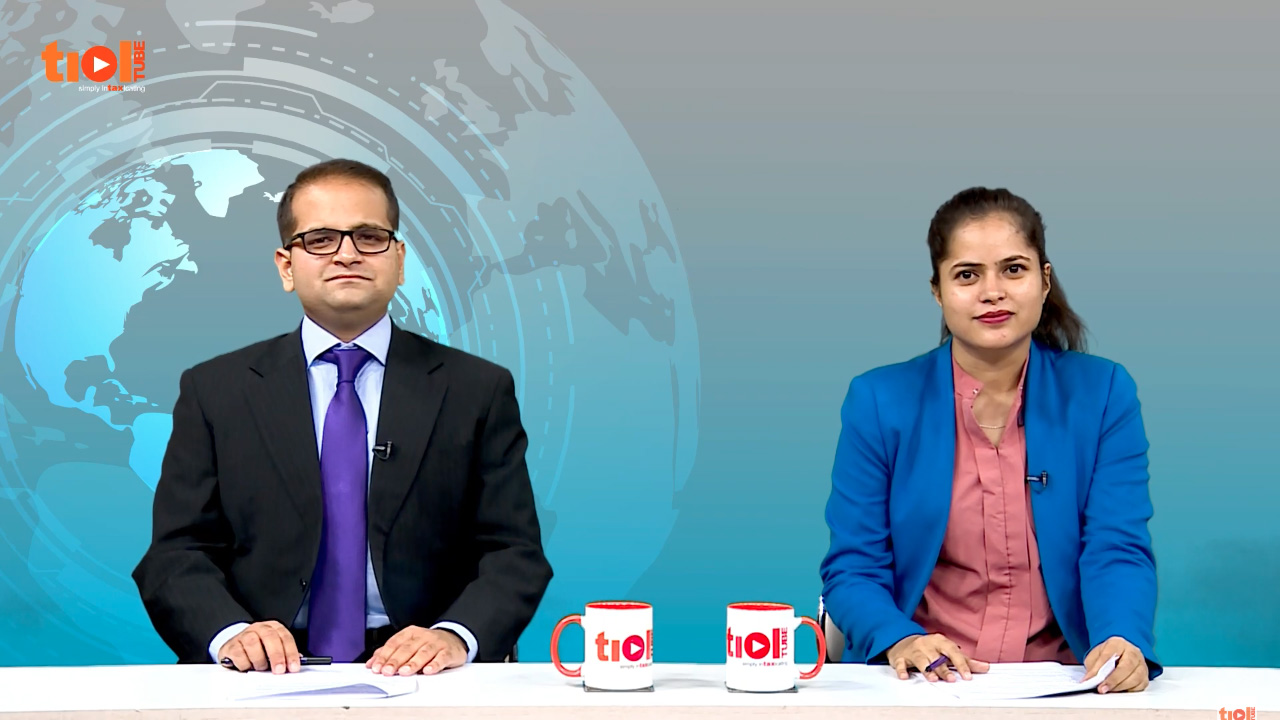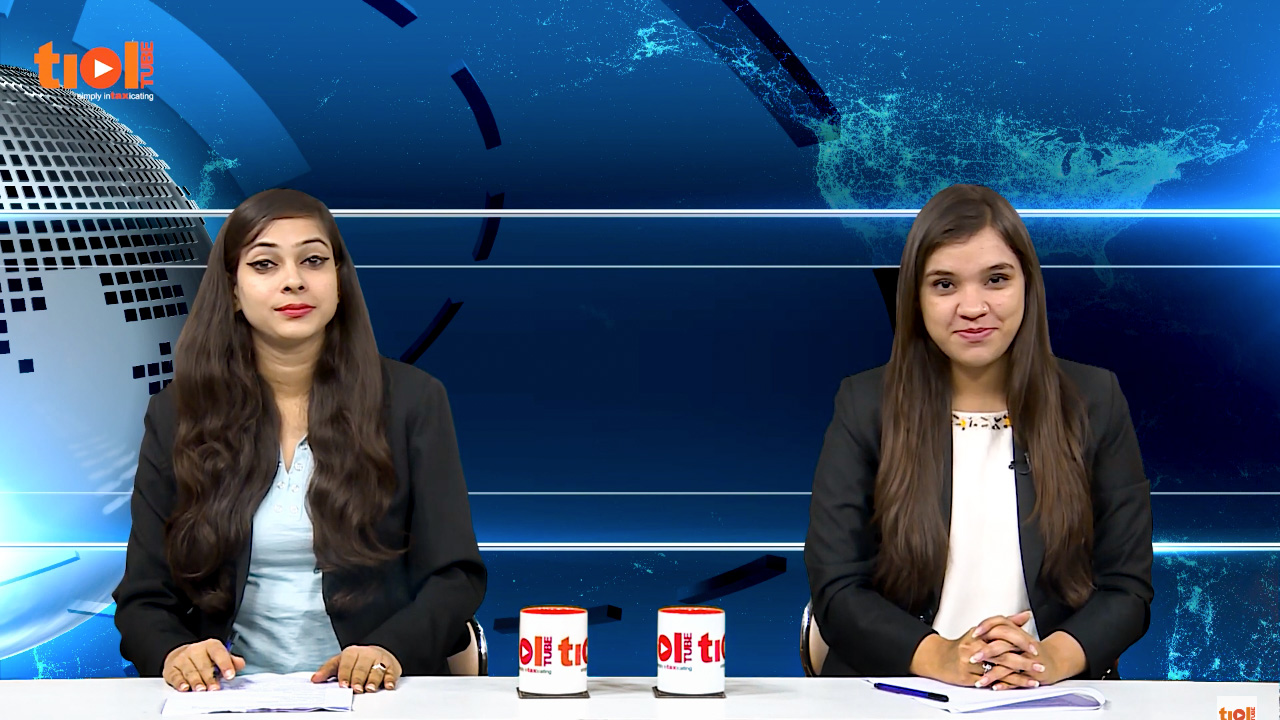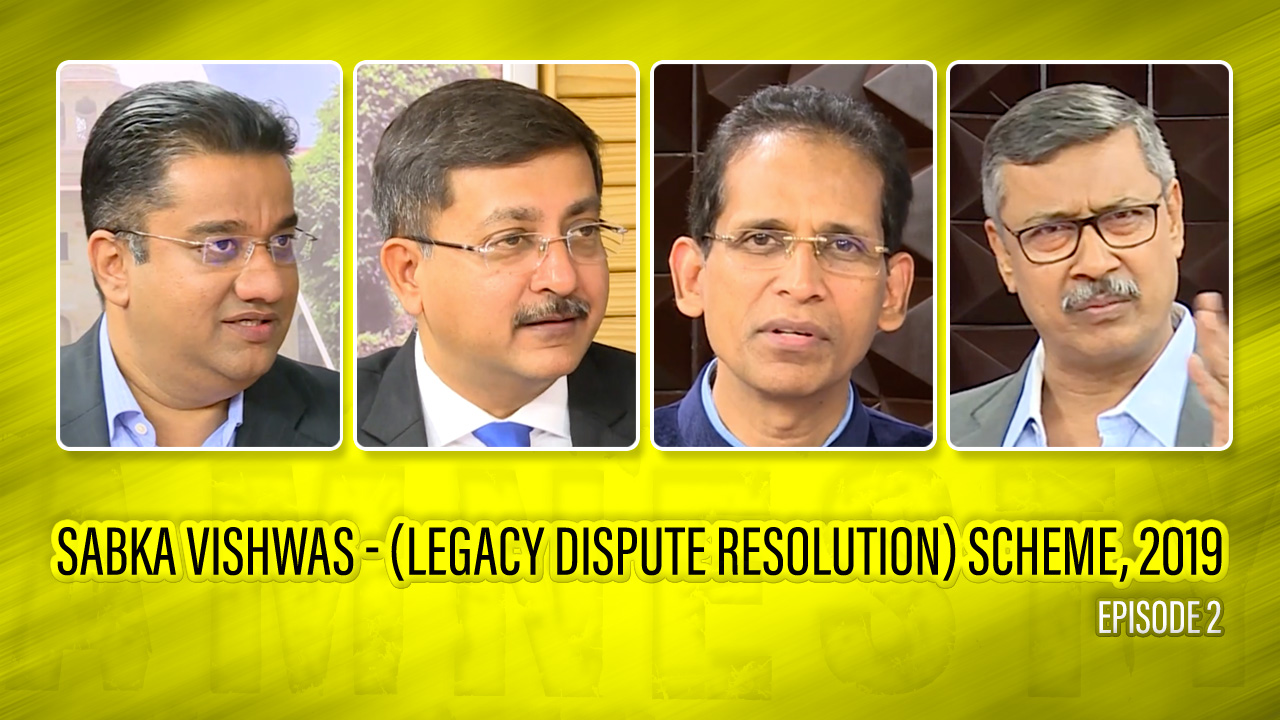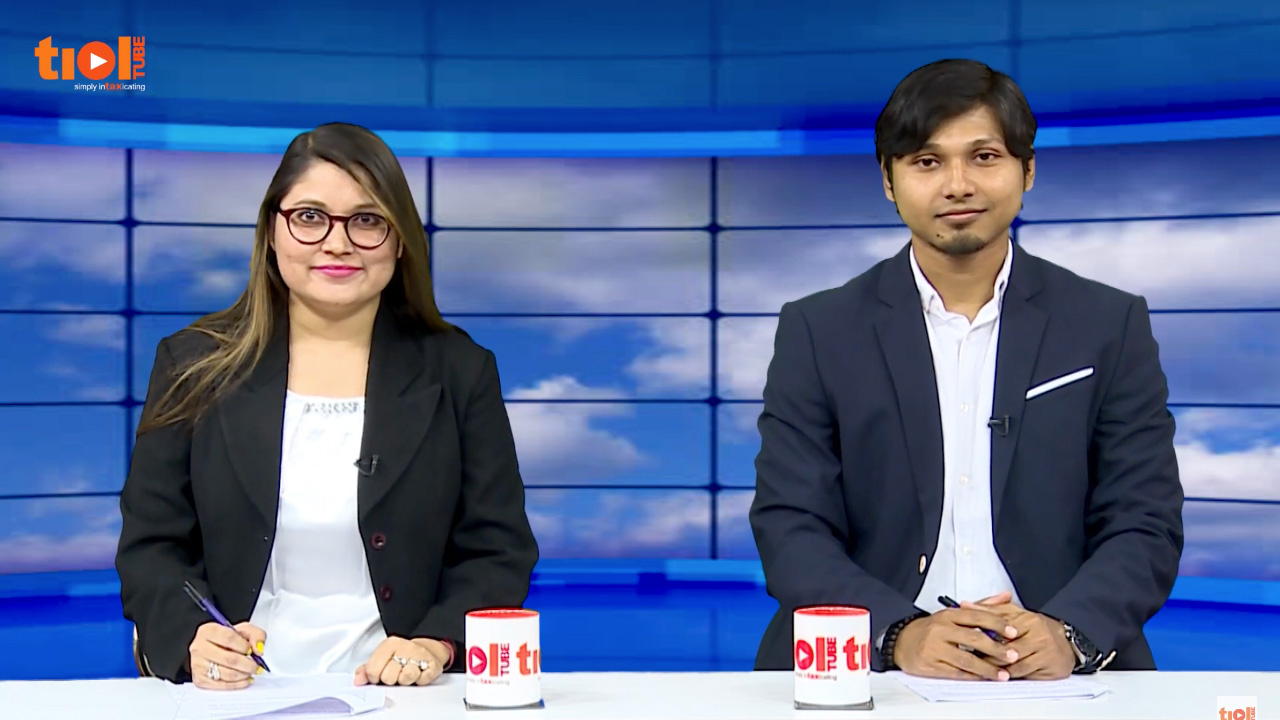|
SERVICE TAX
ST - During the course of audit, it was observed that respondent had availed cenvat credit on input services received at its unregistered premises situated at 5th Floor of the building while its 3rd Floor premises was recorded as registered in ST-2 certificate - recovery of such credits alongwith interest and equal penalty was ordered by the adjudicating authority - appellant succeeded before Commissioner(A), therefore, Revenue before CESTAT.
Held: As found from the order passed by the Commissioner (Appeals), he had opined that since the adjudicating authority had no dispute on the utilisation of credits by the appellant as input services for providing output service and only dispute on the fact of non-registration of other premises of the respondent, proviso to sub-rule (2) of rule 9 of Cenvat Credit Rules, 2004 would be squarely applicable in the case of appellant - he then observed that " …once it is determined that the input service has been received and utilized for providing output service by the appellant, the cenvat credit on such input service is admissible and it makes no difference if the address of the appellant is wrong or missing in the invoice…" - no irregularity found in the reasoned order of the Commissioner (Appeals) - further, as has been consistently held by this Tribunal in several decisions relied upon by the appellant and as rule 4(2) Service Tax Rules had not expressly stated that cenvatcredit is not admissible without such registration of units, there is no reason to depart from the judicial precedent set by this Tribunal which has been consistently in favour of allowing cenvat credit utilised for such other unit/premises of a registered service provider - Revenue appeal is dismissed: CESTAT [para5, 6, 7]
- Appeal dismissed : MUMBAI CESTAT
ST - Vide impugned order, the appellant's claim of refund of Rs.47.64 lakhs was rejected holding the same as time barred - appeal to CESTAT.
Held: Commissioner (Appeals) has not accepted 29.4.2011 as the date of filing of application for refund whereas he has treated the date of filing of refund claim as 21.6.2011 for the reason that application on 29.4.2011 was filed before Assistant Commissioner of Central Excise, Allahabad whereas as per common understanding the refund application should be filed before jurisdictional Assistant Commissioner, Agra and the same was filed before him on 21.6.2011 and considering said date as date of filing, dealt with the issue - the Bench is not in agreement with the said argument of the Commissioner (Appeals) -the refund is sought from the Department of Revenue and both Assistant Commissioner, Allahabad and Assistant Commissioner, Agra are representing Department of Revenue - Assistant Commissioner, Allahabad on receipt of said application on 29.4.2011 instead of rejecting the same should have forwarded the same to the Assistant Commissioner, Agra - therefore, it is held that appellant had filed application for refund on 29.4.2011 - the matter is, therefore, remanded to the Commissioner (Appeals) to decide the issue taking 29.4.2011 as the date of filing of refund application and after following the Final Order No.70892-70893/2017 dated 4.9.2017 of the Tribunal in the case of KribhcoShyam Fertilizers Ltd. and ruling dated 11.7.2018 passed by the Allahabad High Court in Central Excise Appeal No.54 of 2018 - in above terms, the appeal is allowed by way of remand : CESTAT [para 3]
- Matter remanded : ALLAHABAD CESTAT
2019-TIOL-3300-CESTAT-DEL
Bharat Heavy Electricals Ltd Vs Commissioner of CGST, C & CE
ST - The assessee is a Public Sector Undertaking and engaged in manufacture of equipment and machinery relating to generation, transmission, distribution, conservation and utilisation of electrical energy and development of renewable sources of energy having their works set up near the city of Bhopal - As assessee's factory runs 24 hours, in shift, the assessee, to facilitate its large number of workman and managerial staff, has set up a industrial township adjacent to the factory - The assessee realises some lease rent for the use of its premises by educational institutions and cultural organisation - They also realises some amount under the head 'conservancy charges' which are for expenditure by town administration department of the assessee in maintenance of the township, being in the nature of municipal service - It appeared to Revenue that the conservancy charges are part of the lease rent and is taxable to service tax - Accordingly, SCN was issued invoking the extended period of limitation demanding service tax on the lease rent and conservation charges with further proposal to impose penalty - There is no case of having collected the service tax and not paid - It is evident that assessee is a Public Sector Undertaking and maintained the proper record of their transactions - Further, the levy of service tax on lease rent from education institution was wholly exempt - It was only by a subsequent modification of the mega exemption notification (w.e.f. 11.07.2014) the service tax became chargeable on the said lease rent - On this score also, it is evident that there is no malafide on the part of assessee, as such changes were brought about in the middle of the financial year, could have escaped the notice of assessee - The 'conservancy charges' are in the nature of recovery for municipal services provided by town administration department of assessee, for maintaining the industrial township - It prima facie appears that no case of imposing penalty is made out under Section 78, same is set aside: CESTAT
- Appeal allowed: DELHI CESTAT
ST - The assessee-company is engaged in providing telecommunication services - It received amounts for inter-connectivity charges (IUC), which did not attract tax - Thereafter, the definition of telecommunication services was amended from 01.06.2007 onwards, whereupon the services of IUC also became taxable - The assessee had unutilized Cenvat credit as on 01.06.2007 and utilised the same afterwards - The Revenue issued SCN alleging that such services were exempt as per the CCR 2004 and so the unutilized Cenvat credit would lapse because of capping u/r 6(3)(c) of the CCR - On adjudication, the Commissioner held that the balance 80% of the credit which is not utilisable prior to 01.06.2007 shall lapse and that the decision of the Apex Court in Gujarat Narmada Fertilisers would override the provisions of Circular F. No. 137/203/2007 CX-4 dated 01.10.2007 - Hence the present appeal.
Held - A plain reading of the provisions of Rule 6 of CCR indicate that while Rule 6(1) provides that the manufacturer or provider of output service is not entitled for the credit of such quantity of input or input services which are used in the manufacture of exempted goods or exempted service except in the circumstances mentioned in Rule 6(2) - Rule 6(2) provides for maintenance of separate records in respect of inputs, input services substantiating use of input and input services for taxable and exempted goods or services - Rule 6(3) provides that in case separate accounts are not maintained, the manufacturer or provider of services shall follow either of the conditions stipulated in sub-rule (3) of Rule 6 - After the amendment the only change that could be seen in respect of Rule 6(3) is to the extent of payment in respect of exempted goods produced or exempted services provided - While there is a cap on the utilisation of credit attributable to exempted goods or services, there is no cap whatsoever on the availment of Cenvat credit and there is no mention of any lapse of credit after utilisation of credit of 20% prior to 1.4.2008 or after payment of requisite percentage of value after 1.4.2008 - Just because the services provided by the appellants have become taxable with effect from 1.4.2008, it cannot be said that the credit already availed and accrued shall lapse - It is seen that Rule 6(3) begins with the phrase Notwithstanding anything contained in sub-rules (1) and (2) - The only inference which is drawn from such non obstante clause is that the provisions of Rule 3 have an overriding nature - Hence it is very clear from Rule 6(3) that if the provider of output service does not maintain separate accounts, the only restriction placed is on the extent to which the credit can be utilised - There is no provision which mandates that any balance of credit would lapse - Moreover, nowhere in the SCN or in the O-i-O is it brought out with evidence that credit balance available with the assessee is relatable only to exempted services and so cannot be utilised - On this count, the assessee's claim survives - Further, the issue as to time bar in the instant case is concerned not only with the submission of ST-3 returns and details contained therein - The assessee claimed that the Revenue issued two SCNs on an issue which is already an off-shoot of the issue at hand - The SCNs issued in 2008 and 2009 pertain to excess utilisation of credit of input services being exempted services - Understandably, the SCNs must have been issued following detailed scrutiny of ST-3 returns - Once such an SCN is issued, it is not open to the Revenue to rake up the issue on a different preposition and by invoking extended limitation - Hence the SCN and the O-i-O are unsustainable on limitation grounds also: CESTAT
- Assessee's appeal allowed: MUMBAI CESTAT
CENTRAL EXCISE
CX - The respondents were availing cenvat credit of Styrene Monomer and Acrylonitrite falling under Chapter 29 -the goods were cleared under Target Plus Scheme -while the Target Plus scheme was discontinued from 1.4.2006, the respondent availed benefit of said scheme by debiting the additional duty and applicable cess from the licences issued under Target Plus scheme in the capacity of supporting manufacturer and taking cenvat credit of additional duty and cess thereon after 1.4.2006 also -this credit was challenged by the Revenue on the ground that since Target Plus scheme is discontinued with effect from 1.4.2006, benefit of such scheme was not available -therefore, cenvat credit availed by the appellant was incorrect and liable to be disallowed -extended period of limitation was also invoked -the said demand was dropped by the Commissioner observing that while the entire scheme was scrapped but notification no.32/2005-Cus dated 8.4.2005 was amended vide notification no.73/2006-Cus dated 10.7.2006 allowing the benefit of the scheme from which the Commissioner concluded that respondent could continue to avail the benefit of the scheme though the notification no.57(RE-2005)/2004-09 dated 31.3.2006 was issued -Aggrieved, Revenue is before CESTAT.
Held: It is seen that utilization of certificates issued under Target Plus scheme is a matter which falls under the jurisdiction of Customs Authority and not under Central Excise authorities - the Customs authorities have allowed the certificates issued under Target Plus scheme and no demand of duty has been raised by the customs authorities in respect of such imports - notification no.73/2006-Cus has been issued after withdrawal of Target Plus scheme which permits utilization of duty credit certificates issued under the scheme on the basis of incremental growth of FOB value of exports made during the year 2005-06 - the said certificates were issued after abolition of Target Plus scheme - the said certificates have even been issued in August 2007 and February 2008 and, therefore, the argument that respondent could not have used the certificate after abolition of scheme, does not have any force - moreover, notification no.32/2005-Cus is continued even after abolition of Target Plus scheme under condition No.7 which clearly permits availment of credit of additional duty paid - in these circumstances, no merits found in the appeal filed by the Revenue and the same is dismissed : CESTAT [para 6, 7]
- Appeal dismissed : AHMEDABAD CESTAT
CX - The appellant is in appeal against the impugned order wherein cenvat credit availed by them on capital goods has been denied on the ground that at the time of procuring of capital goods, the appellant was availing Area Based Exemption under notification no. 50/2003-CE dated 10.6.2003.
Held: In the case in hand, after 27.11.2013, the goods manufactured by the appellant became dutiable as the exemption under notification no.50/2003-CE dated 10.06.2003 expired - as per rule 4(2)(a) of Cenvat Credit Rules, 2004 [CCR] the assessee is entitled to avail cenvat credit in the financial year in which the capital goods have been procured - the said issue has been examined by the Madras High Court in the case of Kaleesuwari Refinery Pvt. Ltd.] - admittedly, in the case in hand, the appellant has taken cenvat credit on the capital goods for the same financial year when they were manufacturing dutiable as well as exempted final product, therefore, the appellants are entitled to avail cenvat credit in terms of rule 4(2)(a) of CCR -in view of the above, the impugned order is set aside and the appeal is allowed: CESTAT [para 7, 8, 9]
- Appeal allowed : CHANDIGARH CESTAT
CX - During the relevant period, the assessing authority disallowed some amount of Cenvat credit that remained in balance when the assessee opted out of the special facility of duty payment enabled by Notfn No 29/2004-CE to avail exemption under Notfn No 30/2004-CE - Hence the present appeal - The assessee claimed to have reversed the credit attributable to inputs utilized in the finished goods and the work in progress and that the disputed amount represented the balance at the time of opting in for the scheme.
Held - The retention of some of the accumulated credit taken on inputs is allegedly attributable to finished goods lying in stock as well as to work in progress that is under dispute - It is also seen that as the assessee no longer manufactures dutiable goods, the accumulated Cenvat credit cannot be utilized - It also clear that both Rules 11(3) and 3(5) of CCR 2004 has prospective application - Cenvat credit is to be utilized for discharge of liability as prescribed in CER 2002 and Service Tax Rules 1994 - The provisions of CCR 2004 would not be breached by maintenance of a record which logs entry of burden of duty borne or inputs procured by the assessee - The Notfn No 30/2004-CE exempts duty on finished goods of eligible manufacturers, subject to credit of duty not having been taken on inputs or capital goods used for manufacture of these finished goods - As the credit in balance could not be used and the circular no. 645/36/2002-CX dated 16th July 2002, which precedes the amendment in CCR 2004, requires that credit on inputs would necessarily have to be written off, there is no merit in the present appeal: CESTAT
- Assessee's appeal dismissed: MUMBAI CESTAT
CX - The dispute is restricted to the validity of documents on the basis of which the assessee has availed Cenvat credit of service tax paid to Banking and Financial Services received by them during the year 2004 to 2010 - The Original Authority has held that the assessee has availed Cenvat credit of service tax on the strength of self generated statements issued by their bankers and charts showing back calculation of service tax based on bank statements which cannot be considered proper documents in terms of Rule 9 of Cenvat Credit Rules r/w Rule 4A of STR, 1994 - The provisions of Rule 4A itself provides that in case of a banking company or a financial institution, there is no requirement of issuing any specific bill or challan or invoice in respect of taxable services provided by them to a customer and any document issued, by whatever name it may be called, the same would be treated as a proper document - In the absence of any dispute of the tax paid and utilization of said service, the Commissioner (A) has rightly allowed the credit to the assessee - No merits found in the Revenue's appeal, same is accordingly rejected: CESTAT
- Appeal rejected; ALLAHABAD CESTAT
CUSTOMS
Cus - The assessee filed two refund claims towards the Additional Duty of Customs leviable under sub-section 5 of Section 3 of Customs Tariff Act paid on imported goods which were subsequently sold in domestic market on payment of sales tax/VAT - The refund was sanctioned partially, rejecting the rest on the ground of time bar, excess claim and non-production of records - The Commissioner(A) vide the impugned order has set aside the Department's appeals on the ground that the time limit for filing the refund claim is to be considered from the time of sale of goods and not from the time of payment of duty - The issue has been settled by Delhi high Court in the case of Sony India Pvt. Ltd. - 2014-TIOL-532-HC-DEL-CUS wherein it was held that SAD is leviable only on subsequent sale only on the point of sales tax/VAT liability arises and no limitation period can be imposed for filing the refund claims - The assessee has submitted that subsequently, the Delhi High Court in the case of Gulati Sales Corporation - 2017-TIOL-2477-HC-DEL-CUS has also relied upon the decision of Sony India Pvt. Ltd. and held that no time limit can be prescribed for refund of SAD - The Commissioner(A) has rightly dismissed the appeal of Revenue - It is pertinent to refer the relevant finding of Delhi High Court in the case of Sony India Pvt. Ltd. - Since the Division Bench of Tribunal in case of Gulati Sales Corporation has relied upon the decision of the Delhi High Court's decision in Sony India Pvt. Ltd. - By following the ratio of said decision, no infirmity found in the impugned order which is upheld by dismissing the appeal of Revenue: CESTAT
- Appeal dismissed: BANGALORE CESTAT
| |








